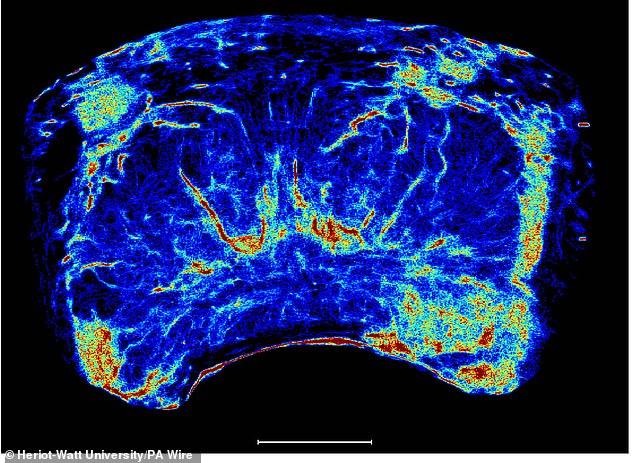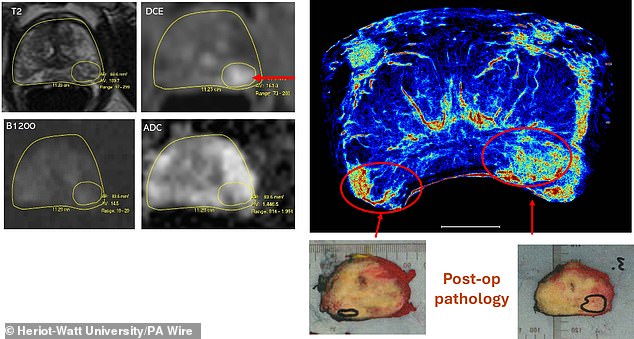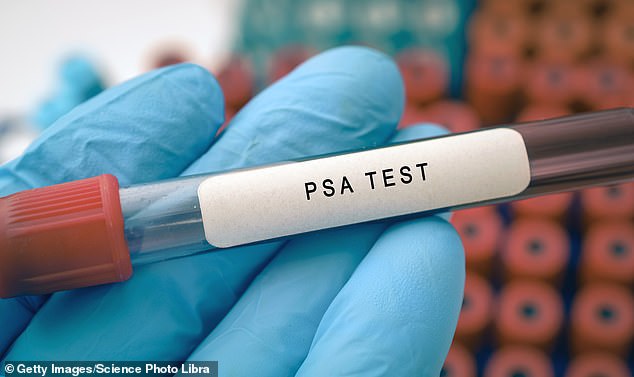Revealed: the test that can detect prostate cancer in just 20 minutes
Waiting times for prostate cancer could be radically reduced by an ‘extremely encouraging’ 20-minute test, scientists have revealed.
The new ultrasound test can detect the vast majority of tumors and takes a fraction of the time required for the existing method of long-term blood tests and MRI scans.
Around 3,400 men in Scotland are diagnosed with prostate cancer every year.
But a team from Heriot-Watt University in Edinburgh said recent tests at the city’s Western General Hospital had shown promising results.
The new test uses a dye, containing microbubbles, that is injected into a vein.
This travels to the prostate, where a high-resolution ultrasound can capture how the microbubbles flow. Any cancer in the prostate changes blood flow.
Early clinical trials show the test can detect 94 percent of prostate tumors and costs a tenth as much as MRI scans.
It also allows for more accurate prostate biopsies and targeted therapy to destroy cancer cells.
The new ultrasound test can detect the vast majority of tumors and takes a fraction of the time required for the existing method of long-term blood tests and MRI scans (Stock Image)

University of Professor Vassilis Sboros from the team at Heriot-Watt University, Edinburgh

Prostate cancer imaging, developed by university researchers, has shown “extremely encouraging” results in early clinical trials

MRI images (left) and new super-resolution images (right) showing a missed tumor

The current method of testing, a blood test called a prostate-specific antigen test (PSA), is unreliable (stock image)
The current method of testing, a blood test called prostate-specific antigen (PSA), is unreliable and means men have to undergo expensive MRI scans, which can involve long waiting lists.
Dr. George Papageorgiou, CEO of test developers Less Gray Imaging, said the new technique has the potential “to reliably detect clinically significant prostate cancer.”
He added: ‘Currently, the diagnosis of prostate cancer varies widely across the country, with many patients diagnosed too late for curative treatment.
‘By integrating ultrasound more prominently into the diagnostic process, we can guarantee an early diagnosis.
“Urologists will receive an imaging tool that enables accurate diagnoses and faster decision-making.”
The technology’s potential has led to government group Innovate UK awarding the company a £370,000 grant.
Professor Alan McNeill, consultant urological surgeon at the Western General and trustee of the charity Prostate Scotland, said: ‘This is the most common cancer in men, but if caught early whilst the cancer remains in the prostate it can be cured . in most cases.’
Gary Tait, chairman of the Edinburgh & Lothian Prostate Cancer Support Group, said: ‘We fully support the development of this new technology, which offers the opportunity to diagnose and treat more men earlier than is currently the case.’
